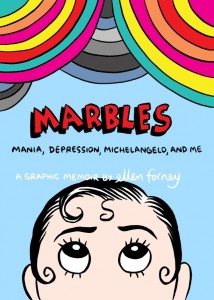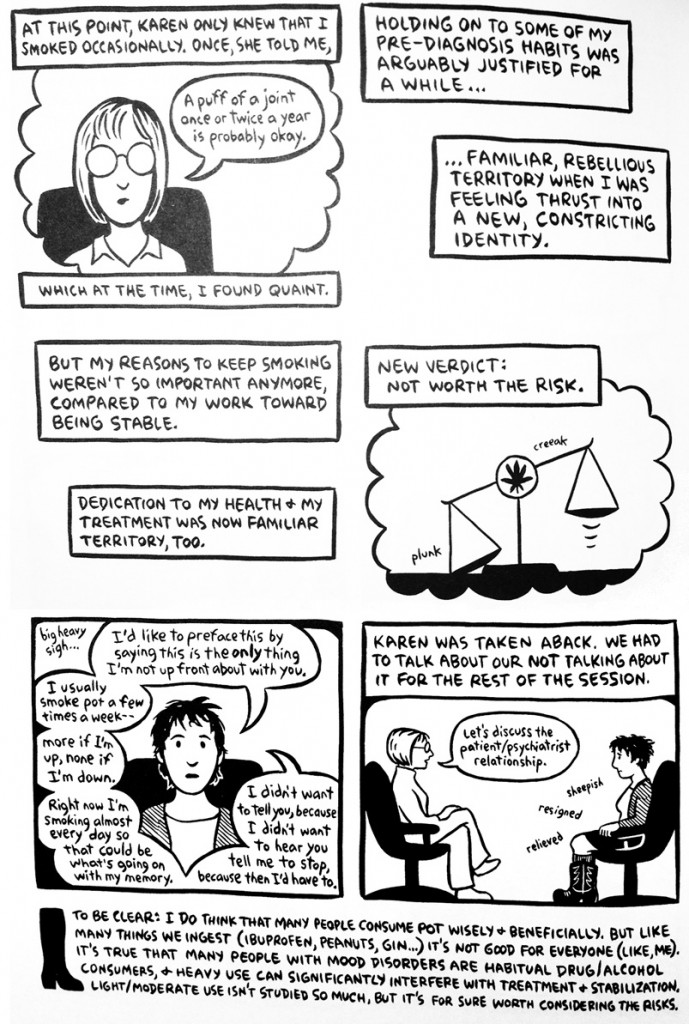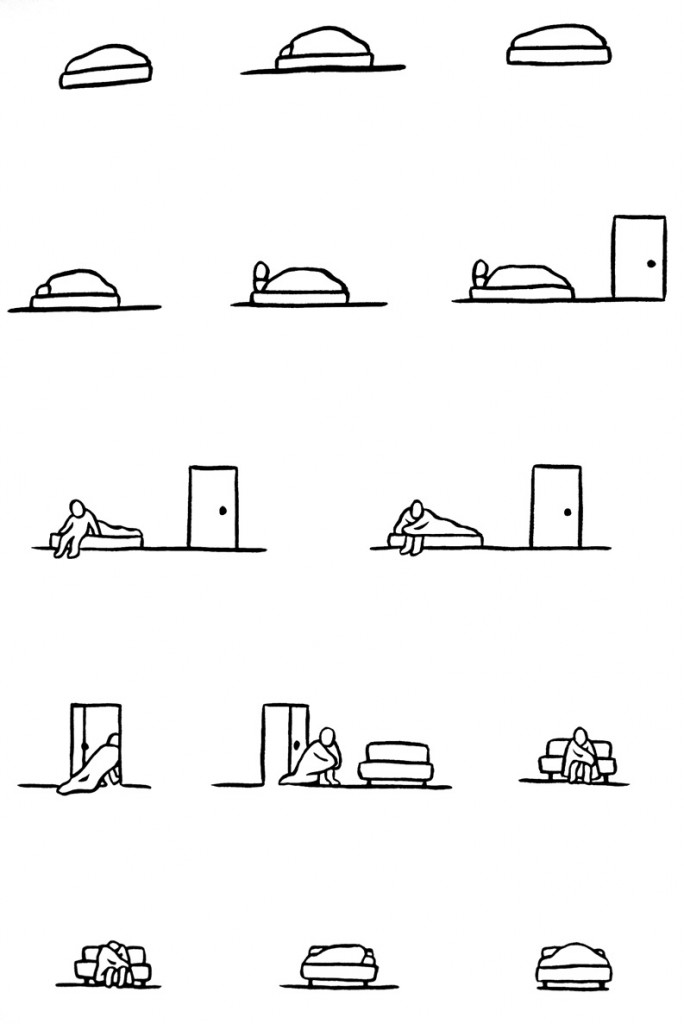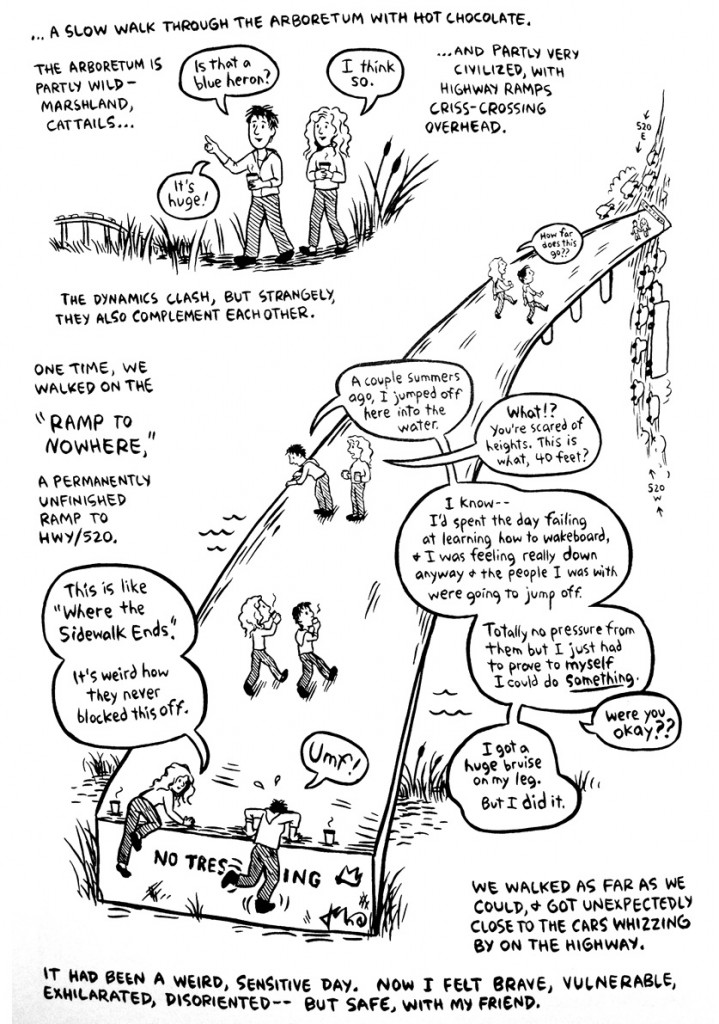 Comics aren’t my usual thing, but I need to give Ellen Forney her due. I’ve just read her autobiography Marbles, about the nature of creativity, bipolar disorder, and her struggle to achieve balance. It’s a lovely thing. The book is a beautiful piece of design, with rich use of archival material, broad variation in style, and a strong sense of rhythm on the page. Her generous creative power makes an eloquent case that, her own fears aside, mood-stabilizing drugs need not dry up an artist’s wellsprings. Trials and suffering may make great source material, but Marbles proves that one doesn’t need to remain a tortured soul to make great art.
Comics aren’t my usual thing, but I need to give Ellen Forney her due. I’ve just read her autobiography Marbles, about the nature of creativity, bipolar disorder, and her struggle to achieve balance. It’s a lovely thing. The book is a beautiful piece of design, with rich use of archival material, broad variation in style, and a strong sense of rhythm on the page. Her generous creative power makes an eloquent case that, her own fears aside, mood-stabilizing drugs need not dry up an artist’s wellsprings. Trials and suffering may make great source material, but Marbles proves that one doesn’t need to remain a tortured soul to make great art.
I don’t know what the “fair use” conventions are for comics. Normally in a review I’d quote passages of less than a page, but it’s very difficult to convey the sense of the work without looking at whole pages at a time— and often whole spreads.
This page gives a sense of the density and approach characterizing the more narrative sections. It shows an elegant blend of inner and outer dialog, present and past tense. Leitmotifs are used to good effect.
 And this is the most poetic, economical description of a major depressive episode:
And this is the most poetic, economical description of a major depressive episode:
 The incisive funny-serious minimalism of it brings to mind xkcd. And finally, here is a less traditional nonlinear decomposition of the page into a story— it could stand perfectly on its own:
The incisive funny-serious minimalism of it brings to mind xkcd. And finally, here is a less traditional nonlinear decomposition of the page into a story— it could stand perfectly on its own:
 A well-deserved Genius Award from The Stranger.
A well-deserved Genius Award from The Stranger.
